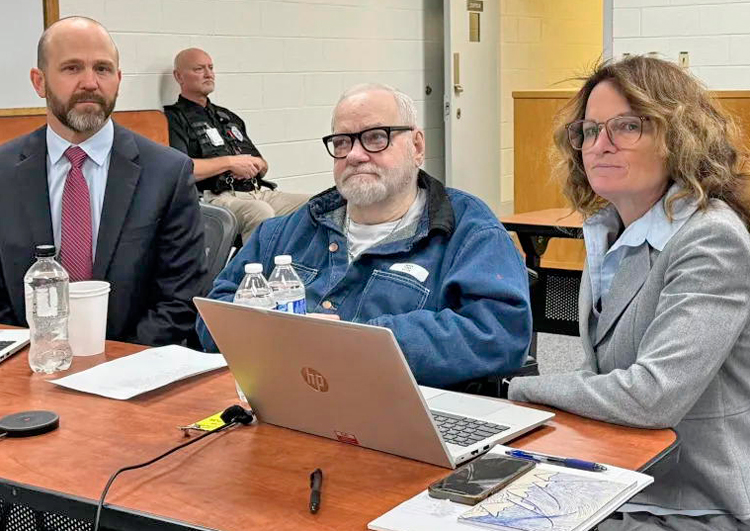In an hourlong botched execution Feb. 28, prison authorities at the Idaho Maximum Security Institution failed to find a vein to kill Thomas Creech by lethal injection. The 73 year old was stabbed eight times but the executioners were unable to set an intravenous line.
At one point, Creech said his legs “hurt a little bit,” but officials put that down to a “cramp.” Witnesses said executioners “used vein finders, hot compresses and blood-pressure cuffs to get access to veins,” reported the New York Times, sending out for more supplies part way through the bungled killing.
Gov. Brad Little had refused a postponement and the U.S. Supreme Court denied Creech’s remaining appeals. Some 15 people gathered outside the prison to protest the execution, singing “Amazing Grace.” Afterward, Creech’s death warrant expired and his lawyers filed a motion for a stay in U.S. District Court.
Creech has been in prison for 50 years, 43 of them on death row, convicted of four murders and accused of other killings, all in his youth. He attributes his crimes to fits of rage while high on amphetamines and other drugs. His death sentence was commuted to life in 1979 but he was sent back to death row in 1983 after beating another prisoner to death.
Current and former prison employees who worked closely with Creech filed declarations with Idaho’s Commission of Pardons and Parole opposing his execution. The state judge who sentenced Creech to death, Robert Newhouse, wrote that he no longer deserved to die. “An execution now would just be an act of vengeance,” he said.
“I’m sorry for my actions, for everything I’ve done,” Creech told the commission. He said he had gotten religion and was determined to do nothing but good. The commission had voted 3-3 Jan. 29 on whether to proceed with the execution, a deadlock that meant it would go ahead.
His lawyers argued the death penalty was unconstitutional because a judge and not a jury had sentenced Creech. In 2003 Idaho was the last U.S. state to rule that a jury must be involved in a capital punishment sentence.
Creech is one of many older prisoners nationwide facing execution. Of the 2,300 total on death row, 25% are over 60.
The attempted execution was Idaho’s first use of capital punishment in 12 years. Last year it approved the use of firing squads, although no protocol is yet in place.
Cantu executed in Texas
Hours after the failure to kill Creech, Ivan Cantu was executed at the state penitentiary in Huntsville, Texas, by lethal injection. He was convicted of the murder of a cousin and his friend in 2000. Cantu always denied he carried out the killings and proclaimed his innocence on the gurney in the death chamber.
The execution took place despite a key prosecution witness admitting he lied during the trial. Cantu said his defense attorney was incompetent, never calling any witnesses on his behalf.
“The trial itself was fabricated,” Jeff Calhoun, the foreperson for the jury that found Cantu guilty, told KXAN-TV before the execution. “The simple fact is that there was perjury committed in the case.”
Anti-capital punishment activist Sister Helen Prejean was at Cantu’s side during the execution. She had called on Gov. Greg Abbott to pause the execution.
“When justice is not done in the courts … he can grant a reprieve long enough to be able to look at the new evidence, which no court is yet willing to hear,” Prejean said.
Cantu is the 587th person to be executed in Texas since 1982. Six more executions are scheduled nationwide for 2024 — in Texas, Missouri, Oklahoma and Ohio.


